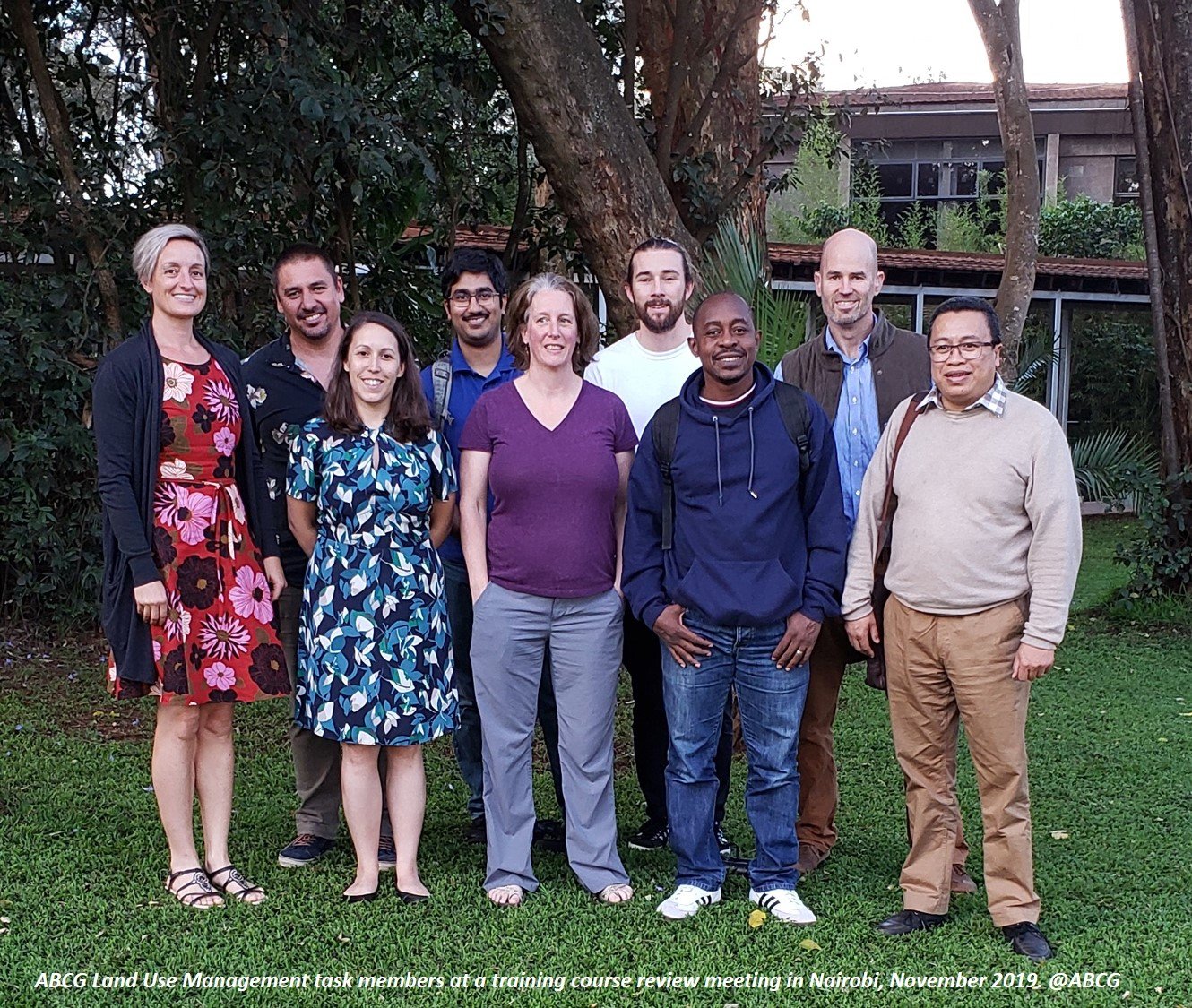The Africa Biodiversity Collaborative Group (ABCG) is developing a modular training course on integrating biodiversity in Land Use Planning for African countries. This course aims to provide an introduction to the theory and practical starting points of integrating biodiversity into land-use planning, for better land use decisions and will be released in 2020. On Nov 4-8, 2019, ABCG’s Land Use Planning task group members met in Nairobi, Kenya to review and refine the training course and map out the next steps.

Landscapes in Africa are being reshaped by a suite of drivers including population growth, changing resource utilization patterns, economic development and climate change. This change is putting a lot of pressure on the natural ecosystems leading to their sharp decline on the continent. Degradation of freshwater resources, habitat loss, loss of forest cover, species extinction, soil erosion and climate change are some of the effects being witnessed as a result of this change.
Land use planning offers an important solution to this challenge and realize sustainable land management. Sustainable land management would support to ensure that critical services provided by landscapes are maintained and enhanced. In addition, land use planning supports conservation planning frameworks to realize more robust conservation interventions.
ABCG through its Land Use Management task group consisting of members from six leading conservation organizations: Conservation International, The Nature Conservancy, Wildlife Conservation Society, World Resources Institute, African Wildlife Foundation and the Jane Goodall Institute, and other partners, have been developing a methodological approach to conservation and land use planning. This approach is based on scenario analysis, and guidelines for its application, to incorporate equitable and climate-smart alternatives into land use decisions for conservation.
Together these organizations have been able to pilot methodological approaches to conservation and land use planning based on scenario analysis, and guidelines for its application, to incorporate equitable and climate-smart alternatives into land use decisions for conservation. Pilot activities have been carried out in five countries in Africa (the Republic of Congo, DRC, Madagascar, Gabon and Tanzania) with the approach being promoted in other regions of Africa.
This course incorporates previous work done by the Land Use Management task members. It will involve a modular curriculum of theory, case studies, group work and decision support tool training. The course is intended for professionals responsible for land-use and natural resource management (including a wide range of sectors e.g. environment, tourism, transportation), or from cross-sectional management bodies.
The training course will build capacity of African governments and stakeholders in the use of tools and methodologies for effective land use planning. By providing the right tools and building capacity of stakeholders, ABCG believes that decision makers would be able to come up with land-use options that would support sustainable land management.
Related resources: Four African Case Studies Exploring How to Incorporate Biodiversity into Land Use Planning Using Spatial Prioritization and Scenario Analysis


Add a Comment